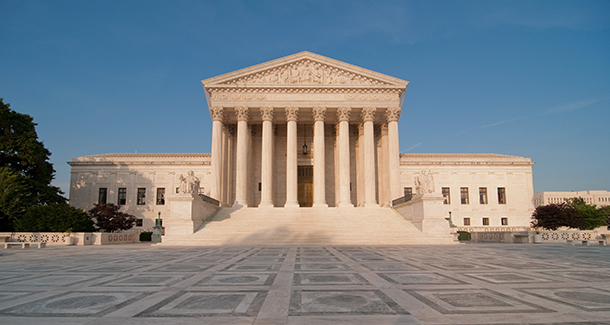
Today the U.S. Supreme Court upheld the concept of independent citizens redistricting commissions. This is big news in California. Voters passed Proposition 11 in 2008, and later Proposition 20 in 2010, which provided a bipartisan group of California voters, and not the self-interested elected officials, the power to draw political boundaries. The reforms were intended to reduce partisan gerrymandering and encourage more competitive elections and many believe they have succeeded.
The case brought by the Arizona State Legislature argued that the United States Constitution gives the power to draw congressional boundaries exclusively to legislatures.
The Court disagreed, voting 5-to-4 to uphold the independent redistricting process. The swing vote was cast by Justice Anthony Kennedy, a native Californian.
Justice Ruth Bader Ginsburg wrote in the marjority opinion that the federal Constitution gives states broad leeway to decide on their election rules, and states like Arizona and California may rely on “direct democracy” and the inherent power of voters.
“The people of Arizona turned to the initiative to curb the practice of gerrymandering,” said Ginsburg, and nothing in the Constitution forbids them from making that decision.
Chief Justice John Roberts, in his dissent, accused the majority of performing a “magic trick” by interpreting the Constitution to allow the people, not the legislature, to set the rules for electing members of Congress.
“Today’s U.S. Supreme Court decision was a strong affirmation of California’s independent redistricting process and constitutional right of voters to prevent self-interested gerrymandering by state legislatures,” said Jim Mayer, President and CEO of CA Fwd.
“A vibrant democracy requires citizen involvement,” Mayer continued, “That is why California Forward worked hard to pass Proposition 11 in 2008 and to support the successful implementation of Props 11 and 20. CA Fwd believes the public must reassert its ownership of government to restore the capacity of legislatures to respond to and resolve critical public issues.”
California has used its powerful direct democracy tool, the ballot initiative to pass a number of electoral reforms in recent years, starting with Prop 11 in 2008.
In 2010, Californians passed Proposition 14 and Proposition 20, the Top-Two Primary which gives every voter the right to vote for all candidates in primary elections, giving politicians an incentive to appeal to all voters in their districts, and gave the state’s independent commission the ability to draw Congressional lines.
In 2012, Californians approved Proposition 28 Term Limit Reform which allows state lawmakers to serve up to 12 years in either house of the Legislature, giving them a chance to build expertise and relationships.
In 2014, Californians said yes to Proposition 42, Public Records Reform which affirms in the constitution the public’s right to local government records.
“Without a doubt,” said Mayer, “the court granted a victory to the power of voters and their authority to enact important reforms through voter-led initiatives.”

